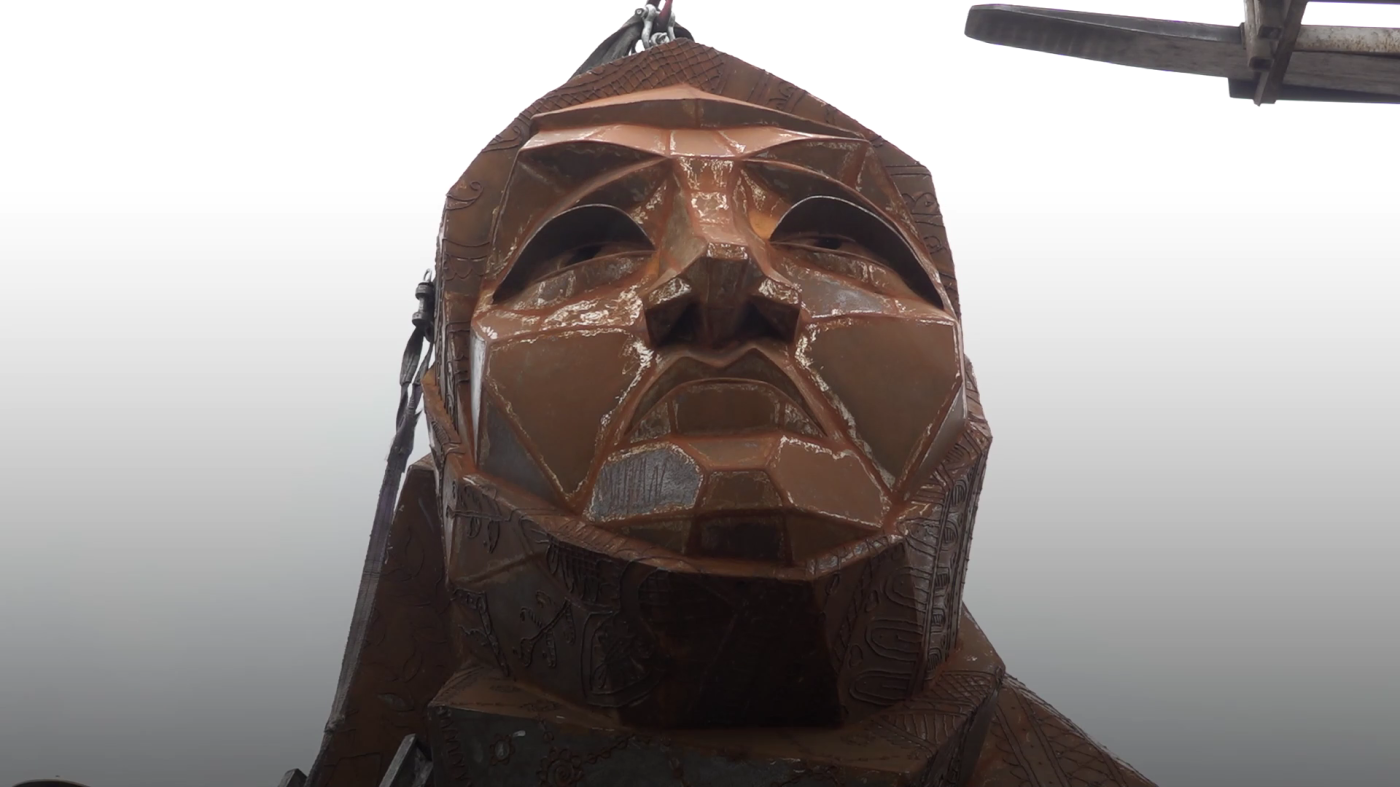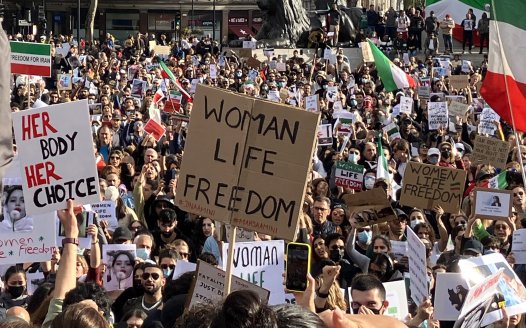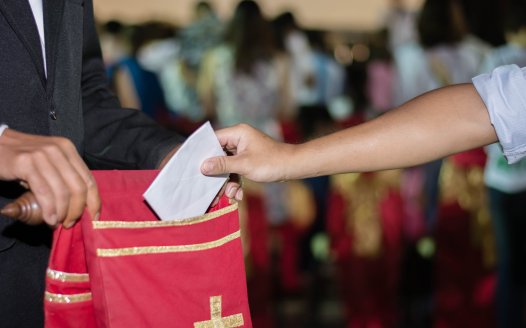A monument to hijab is no way to celebrate women
Posted: Wed, 20th Sep 2023 by Megan Manson
A 16ft steel statue of a grim-faced women clad in an Islamic veil looms over a largely Muslim community. Weighing around a tonne and sharply angular, she evokes the totalitarian aesthetic of brutalist architecture: cold, imposing and inhuman. At her base is her name: "The Strength of the Hijab".
One can imagine such a statue in the centre of an Islamist theocracy such as Iran or Afghanistan – if radical Islam did not forbid depictions of people, let alone women, of course – as a reminder and warning to women who dare consider flouting these countries' tyrannical Islamic 'modesty' laws.
But this statue isn't in Iran or Afghanistan. It's to be erected in a park in Smethwick, Birmingham, this October. And its message is not to condemn the hijab as the misogynistic tool of women's oppression that it is in so many countries, but to celebrate it.
It's worth remembering at this point that on Saturday, days before the news of the statue was announced, the world mourned the first anniversary of the death of Mahsa Amini. Amini was a 22 year old woman who died at the hands of Iran's 'morality police' because she apparently wasn't wearing hijab correctly. According to witnesses, Amini was tortured in the back of a police van. Medical evidence suggests she died from severe head injuries inflicted during this torture.
Since Amini's death and the worldwide protests it sparked, Iran's response has been to double down on its subjugation of women and dissenters. Penalties for women who do not adhere to 'modesty' codes include imprisonment and severe fines. The regime has recently announced that businesses whose female employees failed to adhere to mandatory hijab requirements will also be punished.
The UK government's response has included sanctions on Iran's officials, the latest coordinated with other democratic countries on Friday. The timing, one day before the anniversary of Amini's death, was deliberate, to "send a clear message that the UK and our partners will continue to stand with Iranian women and call out the repression it is inflicting on its own people".
That's why the revealing ('unveiling' clearly isn't the right word) of Smethwick's new statue this week is a slap in the face of every woman who rejects hijab codes. It's as if it was timed as an act of triumph against Iran's courageous women who dare to show their hair. It feels like a tribute to the morality police who crush women's rights every day under their heels.
That probably wasn't the intention of those responsible for this statue. It was commissioned by Legacy West Midlands, a registered charity which "has its roots in celebrating the heritage of post-war migrant communities in Birmingham". Luke Perry, who created the sculpture, said: "The location of where it's going is Smethwick, [where] there's a humongous part of the community that is from the Islamic faith.
"They wear the hijab as part of their community, and it is really underrepresented."
These statements reveal that the statue's conception is likely rooted not in explicit support of Islamism, but in ignorance and an unwillingness to think critically about religious practices which are at odds with democratic values.
The assumption that all Muslim women in Smethwick wear hijab is simplistic and plays directly into Islamist narratives that Muslim women who decide not to cover their hair are not real Muslims at all. And in hardline Islam, the penalty for Muslims who are perceived to have left the faith by defying it is severe.
It's not hard to imagine many Muslim women who choose not to wear hijab will feel uncomfortable at being 'watched' by this inanimate incarnation of the morality police. It will add to the pressure they already feel to toe the line with more fundamentalist members of their community and don the headscarf.
Those who are truly underrepresented are the women, Muslim and non-Muslim alike, who defy Islamist demands to cover up. There are thousands of them around the world, but they are silenced, harassed, threatened, imprisoned, tortured, raped, and murdered for their defiance.
The statue's base reads: "It is a woman's right to be loved and respected whatever she chooses to wear. Her true strength is in her heart and mind."
Few things could be a worse symbol for this sentiment than this statue. Far more fitting would a tribute to the women who bravely remove their hijab, such as the iconic women behind the White Wednesday movement in Iran who posted videos and photos of themselves removing their hijab in public.
All the decisions which led to the display of this statue show that British authorities are dangerously naïve when it comes to religion. They still operate under the belief that religion is a wholly positive force to be respected, accommodated and showcased, not something to be questioned.
And those who do question it may find themselves severely punished. Just as Councillor Mike Gilbert was in May, when he was denied the mayoralty of Boston Council because of social media comments he made during the World Cup in Qatar about Islam's treatment of women and gay people.
As a new report this week revealed, one in seven local authorities has adopted a definition of "Islamophobia" which could easily silence criticism of Islam, including the hijab. This no doubt makes it even harder for decision makers to express their concerns about religious issues.
Perhaps this is why Sandwell Metropolitan Borough Council so readily approved the "Strength of Hijab" statue in August.
At a time when the UK should be prioritising community cohesion and basic human rights of all its citizens, its accommodation of religious fundamentalism threatens to deepen divides and drive the already marginalised further from public life.
Monuments to symbols of religious oppression are the last thing we need. We should instead be highlighting the struggles of individuals around the world who put their lives on the line standing up for values which bring us together: equality, democracy and freedom. Rather than celebrating the hijab, let's celebrate the women who bravely tear it off for the sake of those values.








